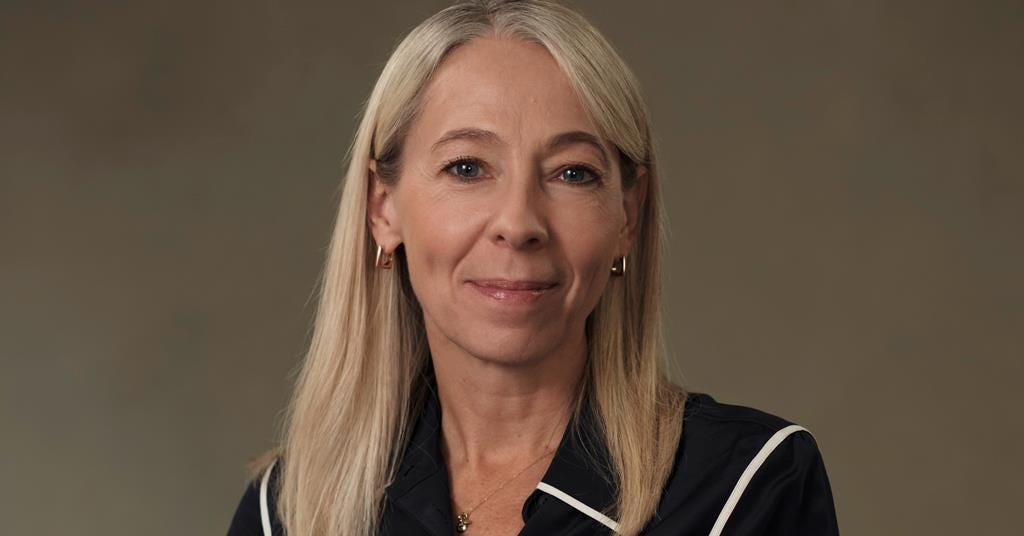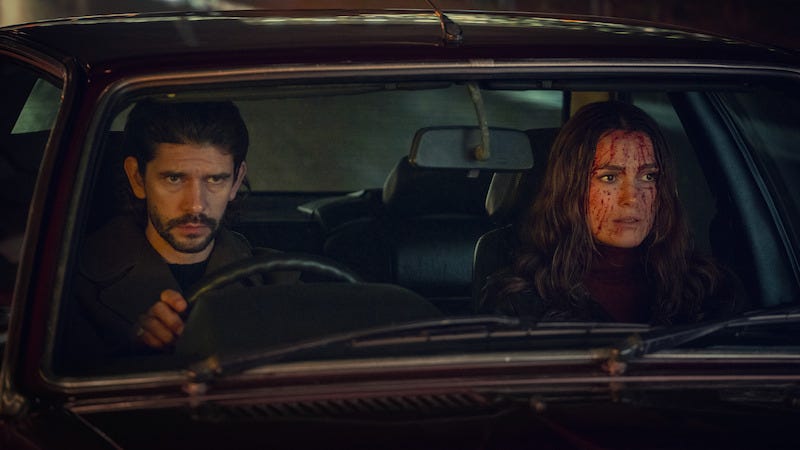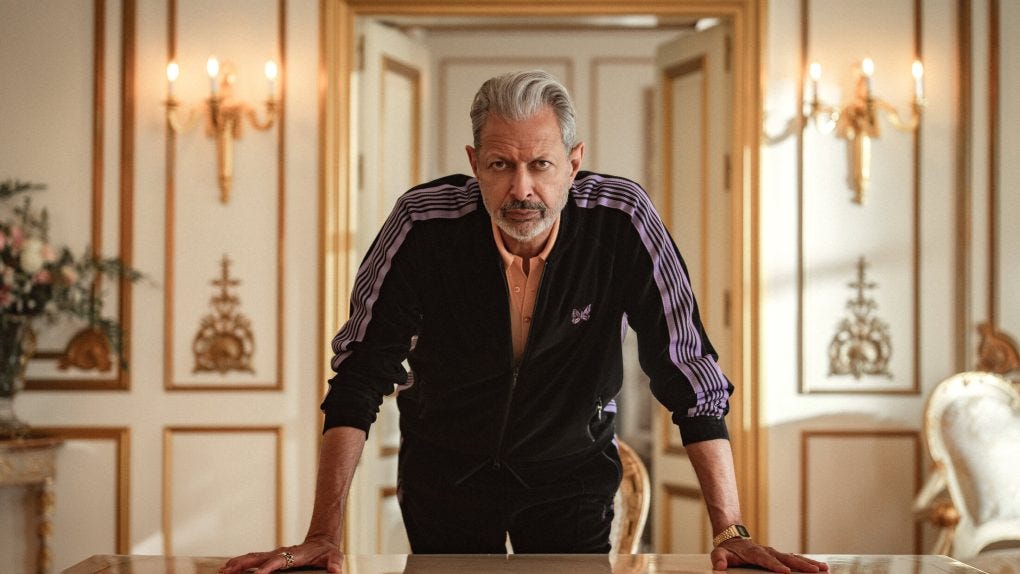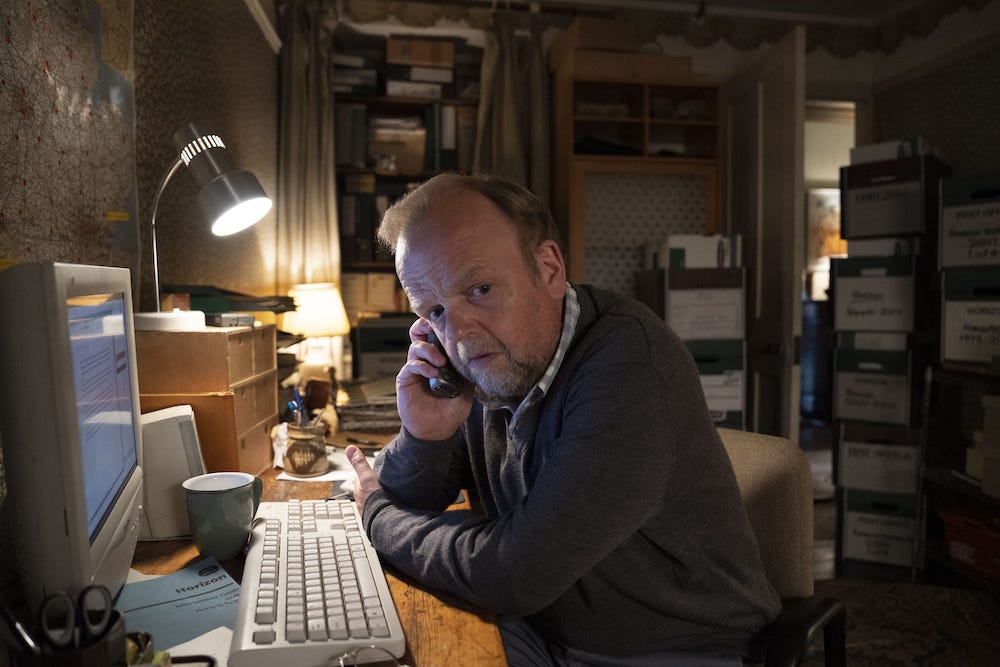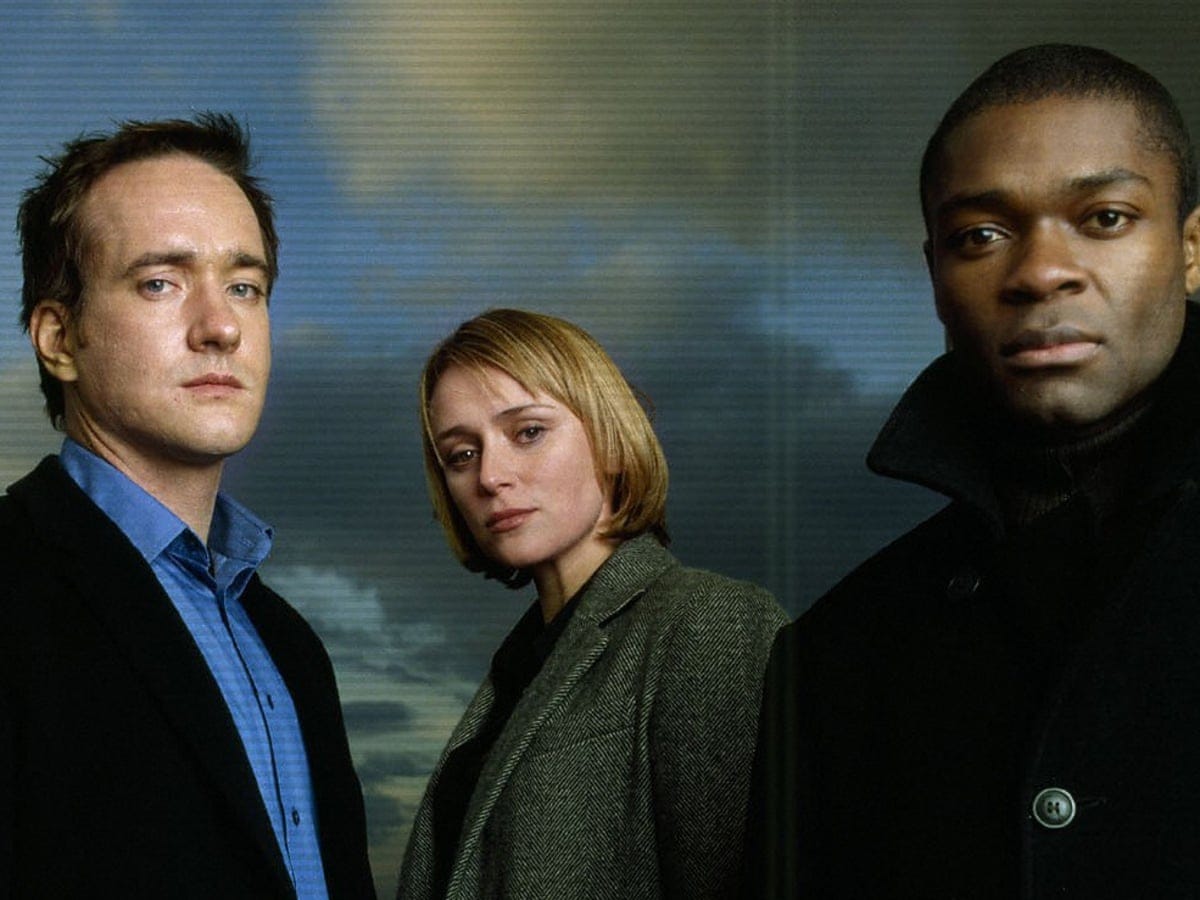'We're not entrepreneurs anymore': Top TV exec's reality check for MPs
ScreenPower: where TV and Film meet politics and power
Last week one of Britain’s top TV execs gave MPs on the House of Commons Culture, Media and Sport Select Committee her thoroughly honest assessment of the current health of the industry.
Who? Jane Featherstone is co-founder of Sister Pictures - one of the UK’s leading indies, and a globally respected producer of high quality international drama. Previously she was Chief Executive of production company Kudos.
Hits: She’s been behind some of the biggest British shows of the last decade or so, including Chernobyl, Broadchurch, Life on Mars, Spooks, The Hour, Ashes to Ashes and (most recently) Black Doves.
Testimony: Her evidence to MPs was highly compelling, and covered a lot of ground. She explained how the landscape has completely changed for producers of high end British scripted TV over the past decade - and described a ‘multifarious picture’ with some parts of the sector operating well, but others ‘at risk’ and ‘unsustainable’.
Summary: It’s a really useful assessment from a policy and industry point of view - and so I’ve summarised the key points for ScreenPower readers in the article below.
You can also read the transcript here, or watch the session here:
Here are the key points…
1. Producers are not entrepreneurs anymore
Jane started by painting a picture of what the industry used to be like for producers of scripted TV, when the High End TV Tax Relief was introduced in 2013.
“We were able, on the back of the terms of trade, to become creative entrepreneurs. What that meant was that I had confidence in building a business and employing many people on permanent contracts—we had, I think, 35 at Kudos—and thousands on freelance contracts. We were able to invest in the future of our industry and our company, because I knew that those rights in success—shows like “Spooks” and “Hustle” sold around the world—meant that profit came back to the BBC, to us, and to the distributor who had paid the advance and helped put that funding together. That was 2013.” …..
But now?
“I feel like a producer for hire now rather than a creative entrepreneur. I like building things. I like building companies that have value and growth. I like using British talent to do that. While a show like “Black Doves” I am incredibly proud of, we do not own that show. Everybody gives over their rights in perpetuity to the streamers. But we would not have been able to afford to make that show with anybody else. Netflix enabled us to do that. It is a complex relationship. They are my buyer and we make a lot of work with them.”
2. We are a service industry now
Jane spoke about the deals that a company like hers can do with streamers now, and how that’s changed over time. Gone are the days where IP ownership would provide a significant ROI for indies following a successful show.
“The deals that we can now establish with the streamers are largely based on one fee that you get. In success, there is not much of an uplift. What makes it difficult for us is to build long-term sustainable businesses. We have effectively gone from being a manufacturing industry to a service industry in respect to the streamers. The terms of trade, which give us rights, still apply to the public service broadcasters. So the rights are not as flexible as I think they might argue for us.”
3. Public Service Broadcasters are being priced out of quality drama
Jane explained the inflationary pressures on production - and how that’s impacting PSBs:
“We are now at a tipping point where costs and budgets have been pushed up by streamers but also by the situation post-Covid, post-strikes—all sorts of things have pushed those costs up. We estimate at Sister—my team did some work for us—that costs below the line have gone up around 40%. ‘Below the line’… does not include cast, writers, producers; those costs are ‘above the line’, and they have gone up even more, probably 50% to 60%. We are at a place now where budgets have become so high that it has priced the public service broadcasters pretty much out of the market.”
And that is affecting her own company too:
“At the moment we have three or four shows that we are making for the BBC and ITV, and are in development with some of the other public service buyers—we are struggling to even get the financing together. Eighteen months ago, that would have still been possible.”
She said TV financing is becoming more like independent film financing:
“A green light [for a commission from a broadcaster for a TV show] used to be where you would say, “Way hay, we have a commission and off we go now and let’s make the show.” Now we get a green light and we ask, “How are we going to fund it?” because a green light is not a traditional green light now; it is, “Here is 30% of the budget.” Given where budgets have got to, a public service broadcaster can only afford to put in 30% to 40% of the budget.”
4. British content at risk
Jane explained that the demand from streamers is for content that has global appeal - with a knock-on impact for UK programming:
“At the moment, because of where the money is coming from, which is largely global inward investment, that is serving a global audience largely. Primarily, Netflix and Amazon need to serve their British audience too, but the costs of that production means it has to be successful around the world. What we are not doing is making sure that we are able to serve that British audience with British content, which would be “Sherwood”, “Mr Bates”, “Derry Girls” and so on, all of those brilliant British shows. That is what is at risk now.”
5. The inconvenient truth - there are too many indies
“The reality is there are probably too many indies that over the years have grown up as part of the system, which is very difficult to sustain given the amount of commissioning that is available. That is a very sad thing to say and, as you know, there have been some closures recently of indies, which is difficult for the business.”
6. We have to remake the philosophical argument for storytelling
Responding to a question about whether the talent pool for the UK’s screen workforce is sufficiently wide and diverse, Jane said:
“Storytelling does help us hold a mirror to our lives. I know this is obvious, it is woolly stuff and it is a bit fluffy but it is critical and it must not be undervalued. I feel as a creative practitioner that the philosophical argument has to be made more than it is, rather than the commercial argument which I think is clear. It is so clear there are so many statistics. But the philosophical argument is we have to create stories that are about the country we live in and represent the people who live here.”
7. Talent training grounds at risk
“On shows like “Hustle” and “Spooks”, we trained up so many writers, so many directors and so many producers because they were long-running and sustainable. We are now not able to do that in a way because the public service broadcasters, who make that content, are not making as much of it and cannot afford to make as much anymore. The training grounds are not there.”
8. A solution: enhance the tax incentive for TV
Jane highlighted the need for Government intervention, outlining a plan to enhance the existing tax relief for High End TV (a definition used for TV shows with a budget of more than £1m per TV hour), based on the new tax credit for Independent Film.
“I feel there is a way of rebalancing the tax incentive that already exists to bring it up to the level of the indie film incentive, which is 40%, and apply that to specifically public service broadcasting and nations and regions out of London.
She described how producers like her are “scrabbling around trying to get the funding together for lower cost drama.” She added that the cost of doing nothing is too great:
“I am just worried that if we do not act quickly it will be too late and that talent pool will be lost. That is the reason [big US studios and streamers] come here. That is the virtuous circle. They come here for what the public service broadcasters give us and that is what we are in danger of losing.”
Get in touch
You’ve been reading an article for ScreenPower: a free newsletter about the TV and film industries - and the decisions taken in Westminster, Whitehall and beyond that affect them.
You can read previous editions of ScreenPower here.
And you can subscribe for free here:





